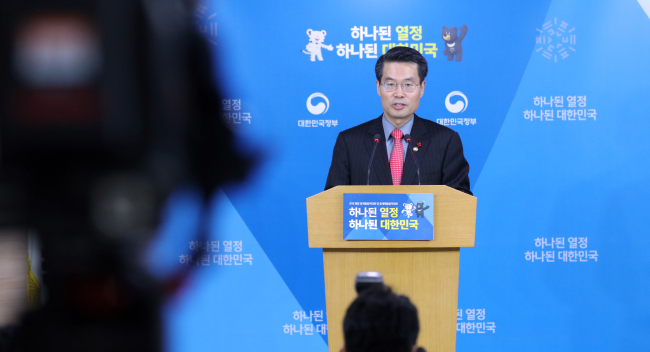Anti-corruption agency seeks again to revise anti-graft law
By Kim Da-solPublished : Dec. 6, 2017 - 17:12
The country’s anti-corruption watchdog said Wednesday that it will try again next week to revise an anti-graft regulation to change price ceilings on the value of gifts, free meals and condolence or congratulatory money that public servants and others can receive.

The Anti-Corruption and Civil Rights Commission said during a press briefing Wednesday that a proposed revision is aimed at raising the upper limit when the gifts are local agricultural, livestock and fisheries products.
The commission sought to double the price limit on gifts to 100,000 won ($91) for agricultural, livestock and fishery goods, but the proposal was rejected in its plenary meeting held in November.
Complaints have been growing that the tough measures are negatively impacting some industries, as the caps are set too low without considering market prices.
In particular, the local agricultural and fishery industries protested strongly, claiming to have suffered a large decrease in sales after the law’s effectuation.
Korea Rural Economic Institute data showed that seven major department stores saw a 14.4 percent on-year drop in sales of gift sets for the Lunar New Year holiday early this year. Sales of gift sets comprising agricultural products declined by 25 percent.
The watchdog had tried to pass an almost identical revision plan late last month but its top decision-making committee voted it down.
Under the new proposal, civil servants, journalists, teachers and their spouses can receive gifts worth up to 100,000 won and congratulatory or condolence money of no more than 50,000 won.
The original and the current regulation which took effect in September 2016 bans some 4 million South Koreans from accepting meals, gifts and money worth more than 30,000 won, 50,000 won, and 100,000 won, respectively.
The commission said it will again table a revision proposal for a vote next Monday.
The enforcement ordinance is part of the “Kim Young-ran law,” named after the former Supreme Court justice.
Meanwhile, a survey conducted in September showed that 89.5 percent of some 1,202 respondents said that the law was effective, as the law bans those subject to it from receiving meals and gifts exceeding designated prices.
Some 45.6 percent said the impact was little, while 5.6 percent said the changes were huge. Just 0.6 percent said there was no change at all.
By Kim Da-sol (ddd@heraldcorp.com)



![[Herald Interview] 'Amid aging population, Korea to invite more young professionals from overseas'](http://res.heraldm.com/phpwas/restmb_idxmake.php?idx=644&simg=/content/image/2024/04/24/20240424050844_0.jpg&u=20240424200058)













![[KH Explains] Korean shipbuilding stocks rally: Real growth or bubble?](http://res.heraldm.com/phpwas/restmb_idxmake.php?idx=652&simg=/content/image/2024/04/25/20240425050656_0.jpg&u=)

